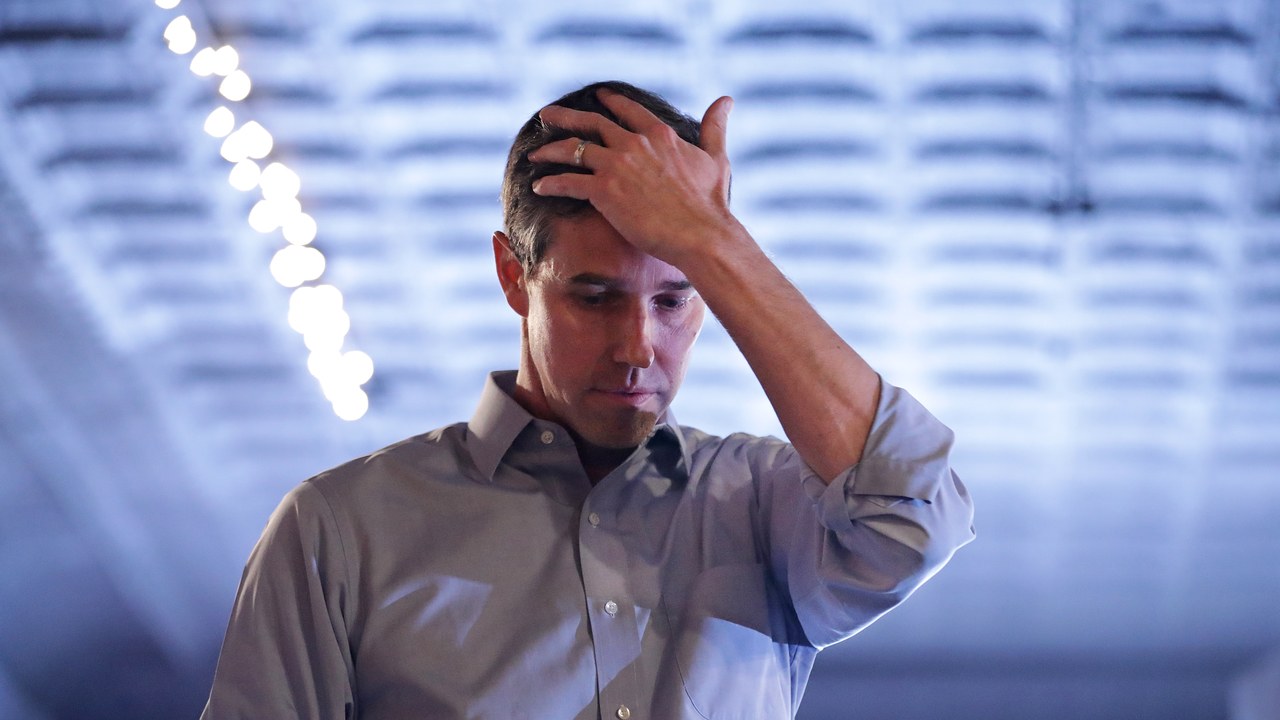Beto O'Rourke Is Running for President, and Progressive Women Have Mixed Feelings

When I first heard two years ago that Beto O’Rourke, a relatively unknown Texas congressman from El Paso without any flashy national legislative wins, was running against swamp monster Ted Cruz for the latter’s Texas Senate seat, I had a similar reaction to a lot of people: Go for it, dude. Why not?
And like a lot of people, when I saw the lavish magazine profiles and never-ending Facebook Live videos and sweat-soaked blue button-downs, I got excited. Texas needed this win. Democratic organizers in states put for decades in the “Lean Red” and “Solid Red” columns needed this win. And with so much on the line in the 2018 midterms, progressives nationwide needed this win. I believed Beto O’Rourke’s message could inspire action from generation of activists and voters for years to come. And even after he lost, I hoped we’d see him again in the future.
So when news broke that O’Rourke was gearing up for a presidential run, you’d think I’d jump for joy. But I didn’t.
As a candidate in the Texas Senate race, O’Rourke radiated promise and optimism, an avatar for Democrats who’d had little to cheer for in such a historically conservative state. As a candidate on the national stage, however, he looks a lot less like the future we’d hope for. Even against just the other white men in this race (or about to get in it) like former Vice President Joe Biden, Vermont Sen. Bernie Sanders, and Mayor Pete Buttigieg, it’s hard to say what Beto O’Rourke brings to the table other than potentially a Best Personality™ superlative.
It’s hard not to be skeptical, too, about O’Rourke’s personality-driven bid when former Georgia gubernatorial candidate Stacey Abrams and former Florida gubernatorial candidate Andrew Gillum are putting their post-election efforts towards initiatives like rebuilding Georgia’s entire election system and creating a voter registration group in Florida, respectively. (Abrams may yet announce a run for higher office, but if and when she does, it’ll be backed up with clear policy objectives that she’s detailing now.) If O’Rourke truly wants to do the “greatest good” for America as he claims, why not focus on uprooting structural inequality on the ground and making it easier for the most vulnerable Americans to have their voices heard and their needs met? What does running an ambiguous presidential campaign achieve?
There’s a big difference between O’Rourke running unopposed against Ted Cruz, one of the more unpopular members of Congress, and O’Rourke running against a slate of candidates in one of the most diverse primary fields—both in terms of identities and ideology—in presidential campaign history. Against Cruz, the common criticism that O’Rourke was low in ideological direction, policy proposals, and legislative accomplishments faded into the background. Now it’s unmissable. To his credit, O’Rourke has tried to better define where he stands—but his platform seems mostly to draw on the ideas that more liberal-leaning peers have put forward, with few signature ideas of his own. He’s supported a few more progressive efforts like the Green New Deal and ending narcotics prohibition and legalizing marijuana, though he’s also rescinded his support of single-payer healthcare for a more moderate option called Medicare for America.
Some see this mix-and-match politics as a positive. “Him being so focused on talking to people, listening to people, and inspiring people at the start of this campaign in combination with sharing those policies is an important balance for me,” says New York-based editor Olivia, who asked not to use her last name. “I can see how it is energizing young people in the party and even people beyond the party and that excites me—I feel like that should be something we’re all cheering on, whether he’s our number-one choice or not.”





